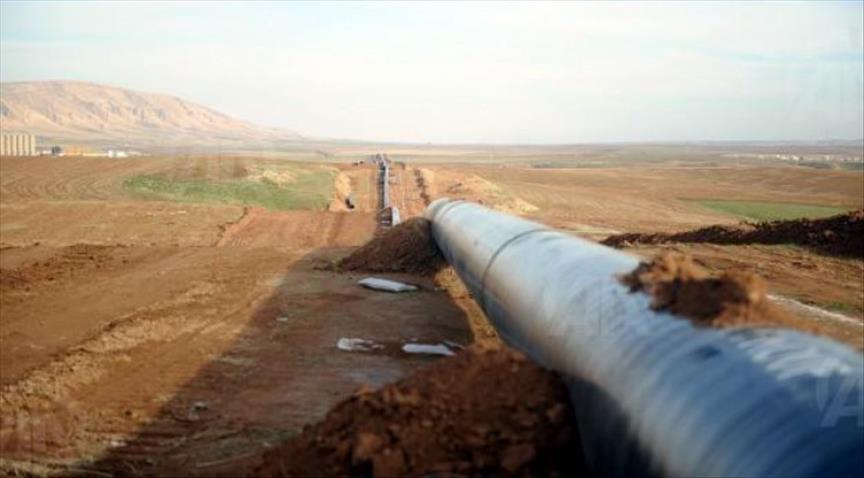The main challenge for Europe and shale gas is public opinion and the "above the ground” problems, an energy expert has revealed on Thursday.
The natural gas crisis between Russia and Ukraine has pushed many European countries into re-thinking their dependency on Russian gas. Shale gas exploration and extraction – popularly known as ‘fracking’ – is among the most debated alternatives for Europe to break this Russian grip over its energy security.
European Energy Commissioner Gunther Oettinger said last week that shale gas could eventually meet about 10 percent of the continent’s energy demand.
Frank Umbach, Associate Director of the European Centre for Energy and Resource Security at King's College, London, told AA that the vested interests of various energy industries and lobby groups, such as the renewable industry in Germany or the nuclear one in France, have not welcomed new competitive shale gas.
Europe is estimated to be sitting on nearly 13 trillion cubic meters of shale gas and Poland, the U.K., Romania and Ukraine were the first countries to start distributing licenses for the exploration and exploitation of shale gas.
Underlining that Europe is often very dependent on Russia and is the hostage of already problematic and expensive long-term contracts with Gazprom based on oil-indexation, Umbach said Moscow has used this leverage to discredit European efforts for shale gas production.
Umbach said old regulations and the uncertainties on how much of the European unconventional resources can be really explored in an economic-competitive way, can only be answered by test drilling, which is just starting in Poland, the U.K., the Baltic states and Ukraine.
European heavy industry companies claim they would be more competitive with the U.S. firms, where companies benefit from far lower prices due to massive shale gas extraction in the country.
“Because of various different circumstances and conditions in comparison with the U.S., Europe will rather see an unconventional gas evolution than revolution,” Umbach said.
He added that, governments in the Baltic states, U.K., Poland, Romania, Ukraine, Spain and Denmark had taken a public leadership role in engaging the public skepticism and opposition because of energy security concerns and positive economic perspectives in regard to the use of domestic shale gas resources.
Hydraulic fracturing, “fracking,” sees rocks under two-to-five kilometers under the soil fractured with high-pressure chemical waters sprayed out of horizontally installed pipes. After the fracturing ends, the fractured rocks release gas that migrates to wells.
The fracking method is the main reason behind Europe’s hesitation on shale gas. Experts fear that the fracking technique under the soil could pollute the underground water systems and the soil. Additionally, it is also feared that the fracturing process might trigger earthquakes.
“What is important is that those risks can be managed by the industry and regulated efficiently by independent governmental-publish agencies and experts,” Umbach adds.
Anadolu Agency


